Search Results
Showing results 1 to 19 of 19

Battleships: Searching Algorithms
Source Institutions
This activity explores the main algorithms that are used as the basis for searching on computers, using different variations on the game of battleships.

Soccer
Source Institutions
In this math activity (Page 12 of the Play Ball! PDF), learners play a game of "soccer" and analyze the results of the game.
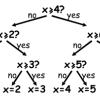
Twenty Guesses: Information Theory
Source Institutions
This activity introduces the idea that computer scientists measure information by how "surprising" a message is.

Basketball
Source Institutions
In this math activity (Page 14 of the Play Ball! PDF), learners play a game of "basketball" and analyze the results of the game.
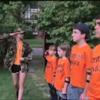
Exercise and Memory
Source Institutions
This activity (page 1 of the PDF under SciGirls Activity: Exercise and Memory) is a full inquiry investigation into the effects of exercise on short term memory.
Shape & Solid Exploration
Source Institutions
In this game, learners use clues to identify mystery shapes. Use everyday objects (like from the pantry) as the shapes.

Tossing Coins
Source Institutions
In this math game (Page 17 of the Are You Game? PDF), learners investigate probability by tossing coins.
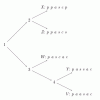
Phylogenetics
Source Institutions
This activity lets learners participate in the process of reconstructing a phylogenetic tree and introduces them to several core bioinformatics concepts, particularly in relation to evolution.

Football
Source Institutions
In this math activity (Page 10 of the Play Ball! PDF), learners play a game of "football" and analyze the results of the game.

The Menu Game at the Terribly Terrific Taco
Source Institutions
In this math game (Page 15 of the Dining Out! PDF), learners figure discounts and/or profit increases for various food totals. Learners add decimals to $100.
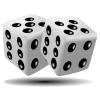
What's the Risk?
Source Institutions
To discover the risk and protective factors involved in substance addiction, learners play a game of chance to determine whether a fictitious child is likely or unlikely to abuse drugs.

Finger Basketball
Source Institutions
In this activity, learners build mini-basketball courts using cardboard and measuring spoons. Use this activity to introduce learners to catapults, forces, and levers.

Sustainable Fishing
Source Institutions
In this activity, learners use a model for how fishing affects marine life populations, and will construct explanations for one of the reasons why fish populations are declining.

Fly on the Ceiling
Source Institutions
In this math lesson, learners play two different games to help them understand coordinates. First, learners read the book, "The Fly on the Ceiling," by Julie Glass.
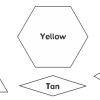
Fantastic Fractions
Source Institutions
In this math lesson, learners compare pattern blocks to visually understand halves, thirds, and sixths.

Baseball
Source Institutions
In this math activity (Page 17 of the Play Ball! PDF), learners play a game of "baseball" and analyze the results of the game.
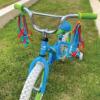
Bike Bling
Source Institutions
In this activity, learners will trick out their bike with crafts and flair. Learners will explore symmetry, cause and effect and design through this activity.
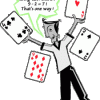
Fantastic Four: A Math Card Game
Source Institutions
This is a game that is sure to sharpen players' basic math skills. Players must use four randomly selected numbers to create an equation that equals a fifth number.
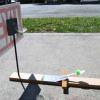
Parabola Basketball
Source Institutions
In this activity, learners build mini-basketball courts and explore the laws of physics. Learners discover that everything you throw or shoot on earth travels in a parabola.
